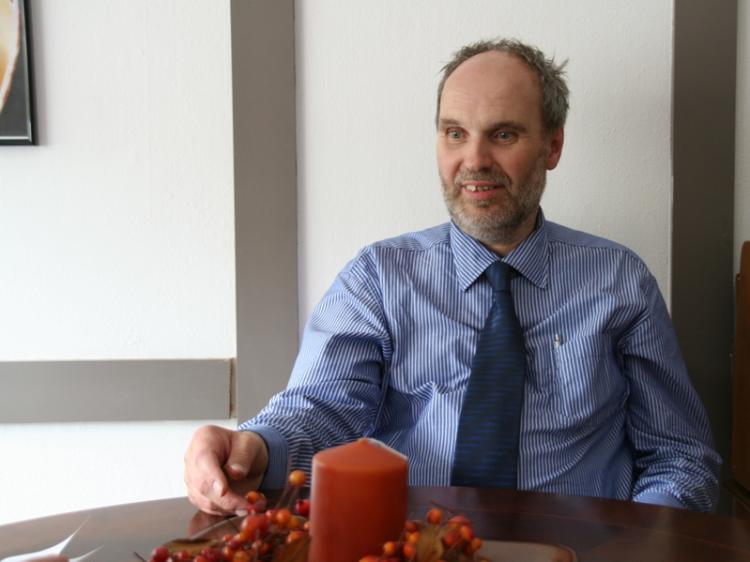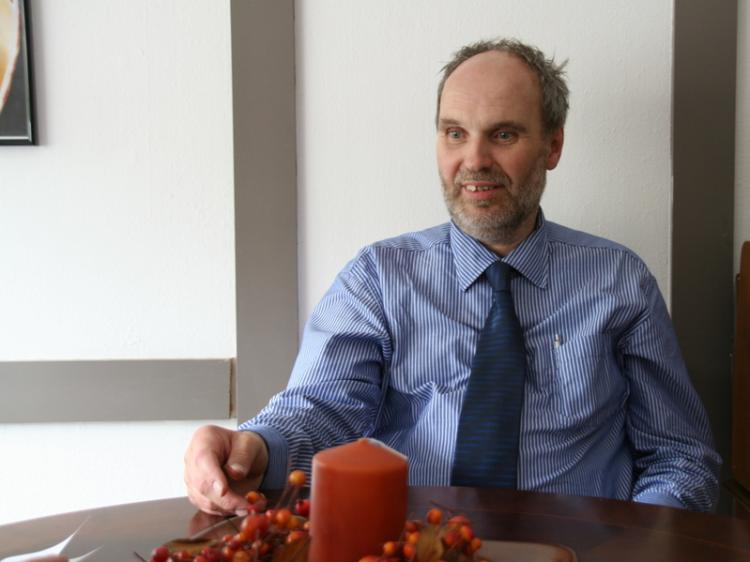Ambulatory Care Services/Home Care could become an attractive alternative to a nursing home stay; especially so when the patient is otherwise still spry. In that situation supplementary care is provided for specific areas, and the patient makes his/her own decisions and is in charge of their life. “This means not handing over decision making to the caregivers or caregiving service,” said Mr Thomas Kim from the Ambulanten Pflegedienst Thomas & Partner. “The patient retains the right to make his/her own life decisions, with help from the extended family. So in helping with decisions, the care personnel answer crucial questions that might make the difference between opting for a nursing home stay or remaining at home.”
Epoch Times (ET): Mr. Kim, what can the service provide?
Thomas Kim (TK): The primary goal is to keep the patient in his/her own home as long as possible, thereby avoiding admittance to a nursing home where possible.
ET: Who are the workers at the car giving services? What qualifications are required?
TK: Primarily licensed caregivers and those specialized in elder care.
ET: Who can apply for this service?
TK: Applicants are not age-dependent, factors depend on the amount of care the person requires. Some applicants are only 50 years old, while others might be more than 90 years old, but still spry. Many of them are at first unsure. Older people might be hesitant or fearful to apply for a care giving service, because they have heard negative information and worry about having to absorb the costs on their own.
ET: What motivated you to establish this service?
TK: I had been running a facility and have long-term experience as an administrator in the care giving sector. I had experienced what it ought to be like in a home during my childhood. Then I compared - at home as a child, and at home as an aged person. I did not see much difference between the two age spans. Those needing care want to be at home, not in a nursing home. Eventually I told myself I would advocate for those who want to remain at home as long as possible, but need some assistance to be able to do so.
ET: Can those now living in a nursing home return to their own home again?
TK: It is always better for those needing assistance to remain at home as long as possible, in their familiar surroundings, instead of being compelled to adjust to strange surroundings in a nursing home. Chances for them are brighter. No need to remove them from their own home prematurely.
ET: How does one assess the needs of someone at home for assistance and remaining home with a caregiver?
TK: The service sends someone to their home and develops a mutual plan for care and assistance with them and their relatives in the home. This is based on co-operation. It does not mean the service makes the decisions about what ought to be done. The patient has the right to make his/her own life decisions, but the relatives are consulted, as already mentioned above
ET: How does your type of service compare with a nursing home stay?
TK: Senior citizens who enter a nursing home lose many of their friends. Those who had kept in close contact visit each other less and less, partly because those still living independently are reminded when visiting that they themselves may need to be in such a place sooner or later. Those who don’t want to be there but are forced to live there retire from the world, so to speak, and merely exist, but no longer live. There are exceptions: some people welcome the opportunity, because it means they are no longer alone. My experience has shown that relatives take a more active interest in loved ones who remain at home with the assistance of a caregiver rather than being in a nursing home. Visits from relatives become less and less for patients in a nursing home, because the family reasons that the patient gets 24-hour care anyway.
ET: Are there limits to a family member providing home care?
TK: It often happens that family caregivers are overwhelmed or over-burdened, particularly with dementia patients. These patients have a tendency to wander off, and the family no longer wants to have the patient at risk. And dementia patients also do some odd things.
ET: What are some signs of dementia?
TK: Sometimes it happens that a person perfectly capable of living at home is erroneously categorized as suffering from dementia. This happens after a hospital stay, for instance, when it presents a difficulty for the attending physician to make a correct diagnosis. Patients sometimes develop “stress dementia” from unfamiliar surroundings in a hospital because they can no longer mentally absorb all the new images and events that confront them. That can lead to a wrong diagnosis. Once they are at home again, their minds return to normal. Following a hospital stay it is best to think logically and rather engage a home care giving service than admitting the patient to a nursing home. I recommend to the family that they try a home care service for two weeks first. Health insurance absorbs a percentage of the costs for dementia patients, too. But care of these patients requires specific training for the caregivers, as it is done for all health care specialties.
ET: Some people say certain care-giving services exploit patients
TK: To be licensed in our business in Germany requires relevant documentation, training and expertise. Health insurance companies and officials strictly supervise the qualification and licensing process. Those services that abide by the guidelines and policies are above board. Those who have less than two years experience are banned from admission to the industry. But it happens that unscrupulous individuals also run care-giving services. Licensed establishments are always beyond reproach and are regularly inspected by medical services and health insurance companies. A patient’s complaint can lead to an surprise speedy inspection.
ET: What options does a patient have if the health insurance carrier does not pay?
TK: There are alternatives- and we counsel people and in some instances support them financially.






